
Dedication
With thanks to Professor Ian Maynard of Sheffield Hallam University, Tim Powell from Sales Academy Ltd and Sarah Norbury.
I have had an interest in sport psychology since 1983 when, as a competitor at a world sailing championship, I witnessed the complete and utter self-destruction of the red hot favourite. The competitor in question had a mediocre result in the first race. Later that afternoon he and his crew member were seen cutting slits into the back of their mast with a hacksaw to try to make it bend in a different way. The next day they had another average result after which they started re-cutting the luff curve on their mainsail. After yet another poor result in race three the pair were seen in the dinghy park throwing bits of the boat at each other: rudder, centreboard and spinnaker pole all received the same treatment before they eventually packed up their boat and headed home.
I looked on in disbelief, absolutely astonished at what pressure and expectation had done to this very talented sailor. Sport psychology was virtually unheard of at the time so later that year I started a degree in mainstream psychology in the hope of developing an understanding of how the mind can interact with performance and how that might be applied to sport. Fortunately one of my tutors not only had an interest in the developing field of sport psychology but was also a keen sailor. This combination meant that I could conduct my undergraduate research in an area of psychology that wasnt considered mainstream at the time.
After I graduated my life took me in a different direction, although as a competitive sailor I maintained an interest in what was happening in the world of sport psychology. Fast forward a dozen years or so and the time was right for me to go back to school and in 1999 I began a masters degree in sport psychology. With my background in sailing and with the help of one of my tutors, Professor Ian Maynard, I began working as one of several sport psychologists contracted to the RYA on a part time basis. In this role I worked with several of the youth squads as well as the Olympic development squads and consider myself privileged to have worked with several sailors who went on to win Olympic medals and achieve significant successes on the World stage.
Incidentally, although I dont remember his name, I do know that the sailor who lost his head in 1983 did regain his composure, went on to achieve great things within the sport and was last seen sailing aboard an Americas Cup contender!
Ian Brown, BSc, MSc, CPsychol
 We are what we repeatedly do.
We are what we repeatedly do.
Excellence is not an act but a habit... 
Aristotle
A lthough there are references as far back in time as the ancient Greeks regarding the importance of mental skills for success in competition, sport psychology is actually a relatively new discipline, having only really become mainstream since the mid 1980s. Since then an ever increasing number of sportsmen and sportswomen across the full spectrum of sports have seen performance benefits from formally introducing sport psychology into their programmes. However, for many people sport psychology is something of a dark art, a mystery shrouded in myth and fiction. This book aims to dispel some of the myths by explaining what sport psychology actually is, and how it can be applied to sailing. The book provides practical advice based upon the application of current research and best practice as identified by many top sailors, and should be useful to any competitive sailor whether they are club level or Olympic aspirants.
There is no doubt that there is a clear relationship between how a sportsperson harnesses and uses their thoughts and emotions and their subsequent physical performance. Evidence of this relationship can be readily found in academic literature and the media. Both are littered with quotes such as:
The dividing line between good performers and great performers often comes down to mental toughness.
In most instances talent and hard work provide no guarantee of success; athletes must have control of their mind.
It is fair to say that the majority of men and women across all sports acknowledge that a significant part of their overall success is determined by what is going on inside their heads what they think and how they think and that they regard this as important as developing their technique and fitness. Crucially this applies to both training and competition. Sailing is no exception. In fact it is widely accepted among top sailors that the rather unique aspects of the sport place a premium on having well refined and well rehearsed mental skills. Sailing is widely regarded as being amongst the most highly complex and technical sports, certainly right up there alongside the likes of Formula 1. It requires a high degree of physical and mental agility with success often being dependent upon the sailors ability to rapidly analyse a multitude of complicated and often conflicting data. The raw components of sailing the wind and the waves are not controllable and are different every time you go afloat. In addition, the playing surface is very large and often very unpredictable making it impossible to cover all the bases; you never quite know what the other competitors are going to do or what might happen next. Combine this with the fact that going to a major regatta may require the sailor to be fully focused for anything up to ten days, and it becomes easy to see the importance of being mentally strong.

There is a clear relationship between thought, emotions and performance
Britains greatest ever Olympian, Sir Steve Redgrave, once said that the least well developed part of most sportspeople is their brains. He wasnt saying that they are poorly educated or inherently lacking in the grey matter department, but he was suggesting that many sportspeople spend a lot of time and effort developing their physical and technical skills, but not so much time working on their mental skills. He was saying that it is relatively easy to improve physically and technically (much of the time it is just a question of application and hard work) but because it is easy for one person it is easy for everyone. He went on to say that when the going gets tough it is mental skills that provide the competitive edge.
Putting this another way, as you reach the higher levels of any sport, the physical and technical skills of the performers become more equalised and it therefore becomes ever more difficult to obtain any sort of a performance edge. In a sailing context what this means is that at the elite level all of the sailors will be fit and well nourished, every boat will be prepared impeccably, everybody will have the most appropriate kit, sails and rigs, everybodys boat handling will be as near to perfect as it can be and nothing will be left to chance. At the highest levels of the sport therefore the physical and technical skills across the top performers arguably become less of a differentiator than what is happening inside their heads. As the physical and technical capabilities of the performers become more equal, the mental aspect becomes more critical. At the elite level, the difference between those sailors that actually have the ability to win, and those that just
Next page
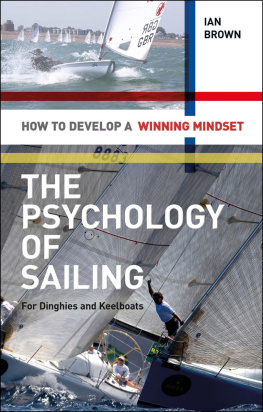





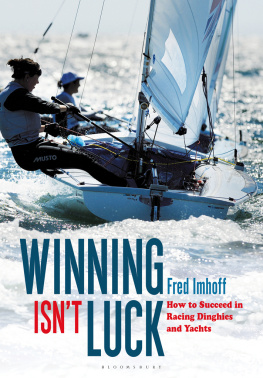
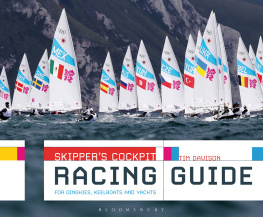


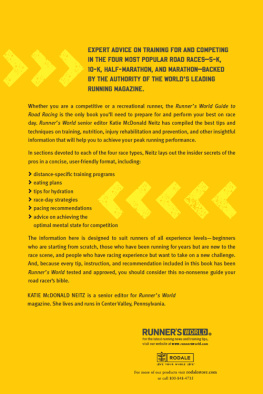

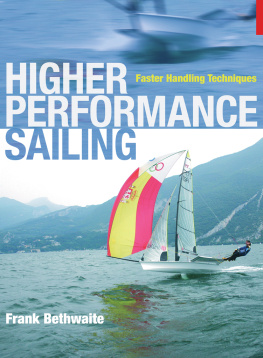



 We are what we repeatedly do.
We are what we repeatedly do.
